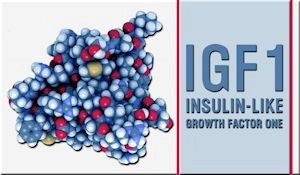Introduction
Premature ejaculation (PE) is a common sexual dysfunction affecting a significant number of men worldwide, with prevalence rates varying across different populations. In the United States, this condition not only impacts the quality of life and intimate relationships but also intertwines with social and psychological factors. This article delves into the influence of peer pressure and societal expectations on the incidence of PE among American males, providing insights into a less-explored dimension of this prevalent issue.
Understanding Premature Ejaculation
Premature ejaculation is clinically defined as ejaculation that occurs sooner than desired, either before or shortly after penetration, causing distress or interpersonal difficulty. While the physiological aspects of PE are well-documented, the psychosocial components, particularly the role of peer pressure, are less understood. The societal expectation for men to perform sexually can exacerbate feelings of inadequacy and anxiety, potentially leading to or worsening PE.
The Role of Peer Pressure
Peer pressure, a potent force in shaping behaviors and self-perception, significantly influences how men view their sexual performance. In the American context, where masculinity is often equated with sexual prowess, men frequently compare themselves to their peers. Such comparisons can lead to increased performance anxiety, a known precursor to PE. Studies have shown that men who perceive themselves as underperforming compared to their peers are more likely to experience PE.
Societal Expectations and Sexual Performance
American society places a high value on sexual performance, often reinforced through media and popular culture. This societal pressure can create a vicious cycle where the fear of not meeting these expectations leads to heightened anxiety and, consequently, PE. The constant bombardment of idealized sexual scenarios can distort men's perceptions of normal sexual function, further intensifying their anxiety and contributing to the problem.
Psychological Impact and Coping Mechanisms
The psychological toll of PE, compounded by peer pressure, can be profound. Men suffering from PE may experience decreased self-esteem, depression, and relationship strain. To cope, some may turn to avoidance behaviors, further isolating themselves and potentially worsening the condition. Addressing these psychological aspects is crucial in managing PE effectively.
Strategies for Mitigation
To combat the effects of peer pressure on PE, a multifaceted approach is necessary. Education plays a pivotal role; by disseminating accurate information about sexual health and normalcy, men can gain a more realistic perspective on sexual performance. Cognitive-behavioral therapy (CBT) has proven effective in reducing performance anxiety and improving sexual satisfaction. Additionally, fostering open discussions about sexual health among peers can help normalize the conversation and reduce the stigma associated with PE.
Conclusion
The interplay between peer pressure and premature ejaculation in American males is a complex issue that extends beyond the physical realm into the psychological and social domains. By understanding the impact of societal expectations and peer comparisons, healthcare providers can better tailor interventions to address not only the symptoms of PE but also its underlying causes. As society evolves, it is imperative to challenge the norms that contribute to sexual dysfunction and support men in achieving healthier, more fulfilling sexual lives.
This article underscores the necessity of a holistic approach to treating PE, one that considers the profound influence of social dynamics on sexual health. Through education, therapy, and societal change, it is possible to alleviate the pressures that exacerbate this condition and enhance the well-being of American men.
Contact Us For A Fast And Professional Response

- Mastering the Clock: Hormonal Influences on Ejaculatory Control and Addressing Premature Ejaculation [Last Updated On: February 17th, 2025] [Originally Added On: February 17th, 2025]
- Navigating the Speed of Intimacy: A Comprehensive Guide to Premature Ejaculation in American Males [Last Updated On: February 20th, 2025] [Originally Added On: February 20th, 2025]
- The Unveiled Mystery: A Thorough Understanding of Premature Ejaculation [Last Updated On: February 25th, 2025] [Originally Added On: February 25th, 2025]
- Unveiling the Mystery: Decoding the Science Behind Premature Ejaculation [Last Updated On: February 26th, 2025] [Originally Added On: February 26th, 2025]
- Unraveling the Enigma: Understanding the Catalysts of Premature Ejaculation [Last Updated On: February 27th, 2025] [Originally Added On: February 27th, 2025]
- Unraveling The Enigma: The Underlying Psychology Behind Premature Ejaculation [Last Updated On: February 28th, 2025] [Originally Added On: February 28th, 2025]
- Master the Art of Intimacy: Proven Techniques to Prolong Ejaculation [Last Updated On: February 28th, 2025] [Originally Added On: February 28th, 2025]
- Demystifying the Haste Hastened: Insights into Premature Ejaculation Matter [Last Updated On: March 1st, 2025] [Originally Added On: March 1st, 2025]
- Unveiling the Intricacy of Premature Ejaculation [Last Updated On: March 2nd, 2025] [Originally Added On: March 2nd, 2025]
- Comprehensive Overview of Premature Ejaculation: Causes, Diagnosis, and Treatment Options [Last Updated On: March 3rd, 2025] [Originally Added On: March 3rd, 2025]
- Understanding and Managing Premature Ejaculation: Impacts and Treatments [Last Updated On: March 4th, 2025] [Originally Added On: March 4th, 2025]
- Understanding Premature Ejaculation: Causes, Diagnosis, and Treatment Options [Last Updated On: March 5th, 2025] [Originally Added On: March 5th, 2025]
- Understanding and Managing Delayed Ejaculation: Causes, Strategies, and Treatments [Last Updated On: March 6th, 2025] [Originally Added On: March 6th, 2025]
- Breaking the Cycle: Managing Performance Anxiety and Premature Ejaculation Effectively [Last Updated On: March 7th, 2025] [Originally Added On: March 7th, 2025]
- Understanding Premature Ejaculation: Impact, Diagnosis, Treatment, and Emerging Therapies [Last Updated On: March 8th, 2025] [Originally Added On: March 8th, 2025]
- Comprehensive Guide to Managing Premature Ejaculation: Natural Remedies and Behavioral Techniques Explained [Last Updated On: March 9th, 2025] [Originally Added On: March 9th, 2025]
- Understanding Premature Ejaculation: Facts, Myths, and Effective Management for American Men [Last Updated On: March 10th, 2025] [Originally Added On: March 10th, 2025]
- Navigating the Dual Challenge: Assessing Medications for Both Erectile Dysfunction and Premature Ejaculation [Last Updated On: March 14th, 2025] [Originally Added On: March 12th, 2025]
- Mastering Ejaculatory Control: Techniques for Enhanced Sexual Satisfaction in American Men [Last Updated On: March 13th, 2025] [Originally Added On: March 13th, 2025]
- Enhancing Intimacy: The Role of Mindfulness in Managing Premature Ejaculation [Last Updated On: March 15th, 2025] [Originally Added On: March 15th, 2025]
- Managing Premature Ejaculation: Communication, Strategies, and Lifestyle Changes for American Males [Last Updated On: March 17th, 2025] [Originally Added On: March 17th, 2025]
- Understanding Premature Ejaculation: Nervous System's Role and Treatment Advances [Last Updated On: March 17th, 2025] [Originally Added On: March 17th, 2025]
- Anxiety's Role in Premature Ejaculation: Causes, Impacts, and Interventions [Last Updated On: March 18th, 2025] [Originally Added On: March 18th, 2025]
- Managing Premature Ejaculation: Strategies for American Men's Sexual Health [Last Updated On: March 19th, 2025] [Originally Added On: March 19th, 2025]
- Premature Ejaculation's Social Impact: Psychological, Relational, and Professional Effects in American Men [Last Updated On: March 19th, 2025] [Originally Added On: March 19th, 2025]
- Managing Premature Ejaculation in Casual Relationships: Strategies and Insights [Last Updated On: March 19th, 2025] [Originally Added On: March 19th, 2025]
- Effective Strategies for Managing Premature Ejaculation in American Men [Last Updated On: March 20th, 2025] [Originally Added On: March 20th, 2025]
- Countdown Challenge: Techniques to Overcome Premature Ejaculation in American Men [Last Updated On: March 20th, 2025] [Originally Added On: March 20th, 2025]
- Effective Techniques for Managing Premature Ejaculation in American Males [Last Updated On: March 20th, 2025] [Originally Added On: March 20th, 2025]
- Managing Premature Ejaculation: Holistic Strategies for Enhanced Sexual Endurance [Last Updated On: March 21st, 2025] [Originally Added On: March 21st, 2025]
- Dietary Strategies to Manage Premature Ejaculation in American Males [Last Updated On: March 21st, 2025] [Originally Added On: March 21st, 2025]
- Lifestyle Changes to Manage Premature Ejaculation in American Men [Last Updated On: March 21st, 2025] [Originally Added On: March 21st, 2025]
- Psychological Strategies for Managing Premature Ejaculation in American Men [Last Updated On: March 21st, 2025] [Originally Added On: March 21st, 2025]
- Managing Premature Ejaculation: New Research and Effective Treatments [Last Updated On: March 22nd, 2025] [Originally Added On: March 22nd, 2025]
- Understanding and Managing Premature Ejaculation: Causes, Treatments, and Holistic Approaches [Last Updated On: March 22nd, 2025] [Originally Added On: March 22nd, 2025]
- American Man's Journey: Overcoming Premature Ejaculation with Medical Guidance [Last Updated On: March 22nd, 2025] [Originally Added On: March 22nd, 2025]
- Managing Premature Ejaculation: Holistic Approaches for Lasting Love and Intimacy [Last Updated On: March 22nd, 2025] [Originally Added On: March 22nd, 2025]
- Non-Pharmacological Therapies for Premature Ejaculation: A Comprehensive Overview [Last Updated On: March 22nd, 2025] [Originally Added On: March 22nd, 2025]
- Understanding and Managing Premature Ejaculation: Causes, Treatments, and Support [Last Updated On: March 23rd, 2025] [Originally Added On: March 23rd, 2025]
- Restorative Sleep Enhances Sexual Stamina, Helps Manage Premature Ejaculation in American Males [Last Updated On: March 23rd, 2025] [Originally Added On: March 23rd, 2025]
- Fitness Regimen Enhances Sexual Health, Combats Premature Ejaculation in American Males [Last Updated On: March 23rd, 2025] [Originally Added On: March 23rd, 2025]
- Managing Premature Ejaculation: Stress Reduction Strategies for Enhanced Sexual Health [Last Updated On: March 24th, 2025] [Originally Added On: March 24th, 2025]
- Cognitive Behavioral Therapy: A Promising Approach to Managing Premature Ejaculation [Last Updated On: March 24th, 2025] [Originally Added On: March 24th, 2025]
- Apps Revolutionize Premature Ejaculation Management with Technology and Privacy [Last Updated On: March 24th, 2025] [Originally Added On: March 24th, 2025]
- Premature Ejaculation in American Men: Holistic Approaches to Enhanced Sexual Health [Last Updated On: March 24th, 2025] [Originally Added On: March 24th, 2025]
- Understanding Premature Ejaculation: Biological Clock and Treatment Options [Last Updated On: March 24th, 2025] [Originally Added On: March 24th, 2025]
- Managing Premature Ejaculation: A Collaborative Approach for Couples [Last Updated On: March 25th, 2025] [Originally Added On: March 25th, 2025]
- Premature Ejaculation: Unveiling Emotional and Financial Burdens and Management Strategies [Last Updated On: March 25th, 2025] [Originally Added On: March 25th, 2025]
- Managing Premature Ejaculation: Techniques, Therapies, and Success Stories in American Men [Last Updated On: March 25th, 2025] [Originally Added On: March 25th, 2025]
- Biofeedback: A Non-Invasive Solution for Premature Ejaculation in American Males [Last Updated On: March 25th, 2025] [Originally Added On: March 25th, 2025]
- Mastering Sexual Endurance: Techniques to Overcome Premature Ejaculation [Last Updated On: March 26th, 2025] [Originally Added On: March 26th, 2025]
- Mastering Ejaculatory Control: Techniques and Insights for American Men [Last Updated On: March 26th, 2025] [Originally Added On: March 26th, 2025]
- Overcoming Premature Ejaculation Stigma: A Comprehensive Guide for American Men [Last Updated On: March 26th, 2025] [Originally Added On: March 26th, 2025]
- Managing Premature Ejaculation: Techniques and Strategies for American Males [Last Updated On: March 26th, 2025] [Originally Added On: March 26th, 2025]
- Managing Premature Ejaculation: Self-Help Resources and Techniques for American Men [Last Updated On: March 26th, 2025] [Originally Added On: March 26th, 2025]
- Premature Ejaculation: Understanding, Treating, and Overcoming in the U.S. [Last Updated On: March 27th, 2025] [Originally Added On: March 27th, 2025]
- Effective Strategies for Managing Premature Ejaculation in American Males [Last Updated On: March 27th, 2025] [Originally Added On: March 27th, 2025]
- Understanding and Managing Premature Ejaculation: Science and Strategies [Last Updated On: March 27th, 2025] [Originally Added On: March 27th, 2025]
- Understanding and Managing Premature Ejaculation: Enhancing Intimacy and Connection [Last Updated On: March 27th, 2025] [Originally Added On: March 27th, 2025]
- Managing Premature Ejaculation: Behavioral Techniques for American Men's Sexual Health [Last Updated On: March 27th, 2025] [Originally Added On: March 27th, 2025]
- Open Communication: Enhancing Sexual Stamina and Managing Premature Ejaculation [Last Updated On: March 27th, 2025] [Originally Added On: March 27th, 2025]
- Managing Premature Ejaculation: Techniques, Therapies, and Lifestyle Changes for American Men [Last Updated On: March 28th, 2025] [Originally Added On: March 28th, 2025]
- Mastering Foreplay to Manage Premature Ejaculation: Techniques and Tips for American Men [Last Updated On: March 28th, 2025] [Originally Added On: March 28th, 2025]
- Medications and Their Impact on Ejaculatory Speed in American Males with PE [Last Updated On: March 28th, 2025] [Originally Added On: March 28th, 2025]
- Premature Ejaculation: Age-Specific Causes and Management Strategies for American Males [Last Updated On: March 28th, 2025] [Originally Added On: March 28th, 2025]
- Herbal Remedies for Premature Ejaculation: A Holistic Approach for American Males [Last Updated On: March 28th, 2025] [Originally Added On: March 28th, 2025]
- Expert Insights on Premature Ejaculation: Causes, Treatments, and Psychological Impacts [Last Updated On: March 28th, 2025] [Originally Added On: March 28th, 2025]
- Premature Ejaculation: Causes, Diagnosis, and Treatment Options for American Men [Last Updated On: March 29th, 2025] [Originally Added On: March 29th, 2025]
- Managing Premature Ejaculation: Strategies for American Men's Sexual Health [Last Updated On: March 29th, 2025] [Originally Added On: March 29th, 2025]
- Managing Premature Ejaculation: Psychological, Pharmacological, and Behavioral Strategies for American Men [Last Updated On: March 29th, 2025] [Originally Added On: March 29th, 2025]
- Managing Premature Ejaculation: Strategies for American Men's Sexual Health [Last Updated On: March 30th, 2025] [Originally Added On: March 30th, 2025]
- Exploring Treatments for Premature Ejaculation: Behavioral to Pharmacological Approaches [Last Updated On: March 31st, 2025] [Originally Added On: March 31st, 2025]
- Overcoming Premature Ejaculation: Personal Stories and Effective Strategies for American Men [Last Updated On: April 1st, 2025] [Originally Added On: April 1st, 2025]
- Exploring the Overlap Between Erectile Dysfunction and Premature Ejaculation in American Men [Last Updated On: April 1st, 2025] [Originally Added On: April 1st, 2025]
- Controlled Breathing: A Holistic Approach to Managing Premature Ejaculation [Last Updated On: April 2nd, 2025] [Originally Added On: April 2nd, 2025]
- Managing Premature Ejaculation: Strategies for American Men's Sexual Health [Last Updated On: April 5th, 2025] [Originally Added On: April 5th, 2025]
- Innovative Solutions and Future Trends in Managing Premature Ejaculation [Last Updated On: April 5th, 2025] [Originally Added On: April 5th, 2025]
- Testosterone's Role in Ejaculatory Control and Premature Ejaculation Management [Last Updated On: April 6th, 2025] [Originally Added On: April 6th, 2025]
- Premature Ejaculation and Prostate Health: Understanding Links and Management Strategies [Last Updated On: April 8th, 2025] [Originally Added On: April 8th, 2025]
- Premature Ejaculation: Causes, Impacts, and Effective Management Strategies [Last Updated On: April 9th, 2025] [Originally Added On: April 9th, 2025]
















